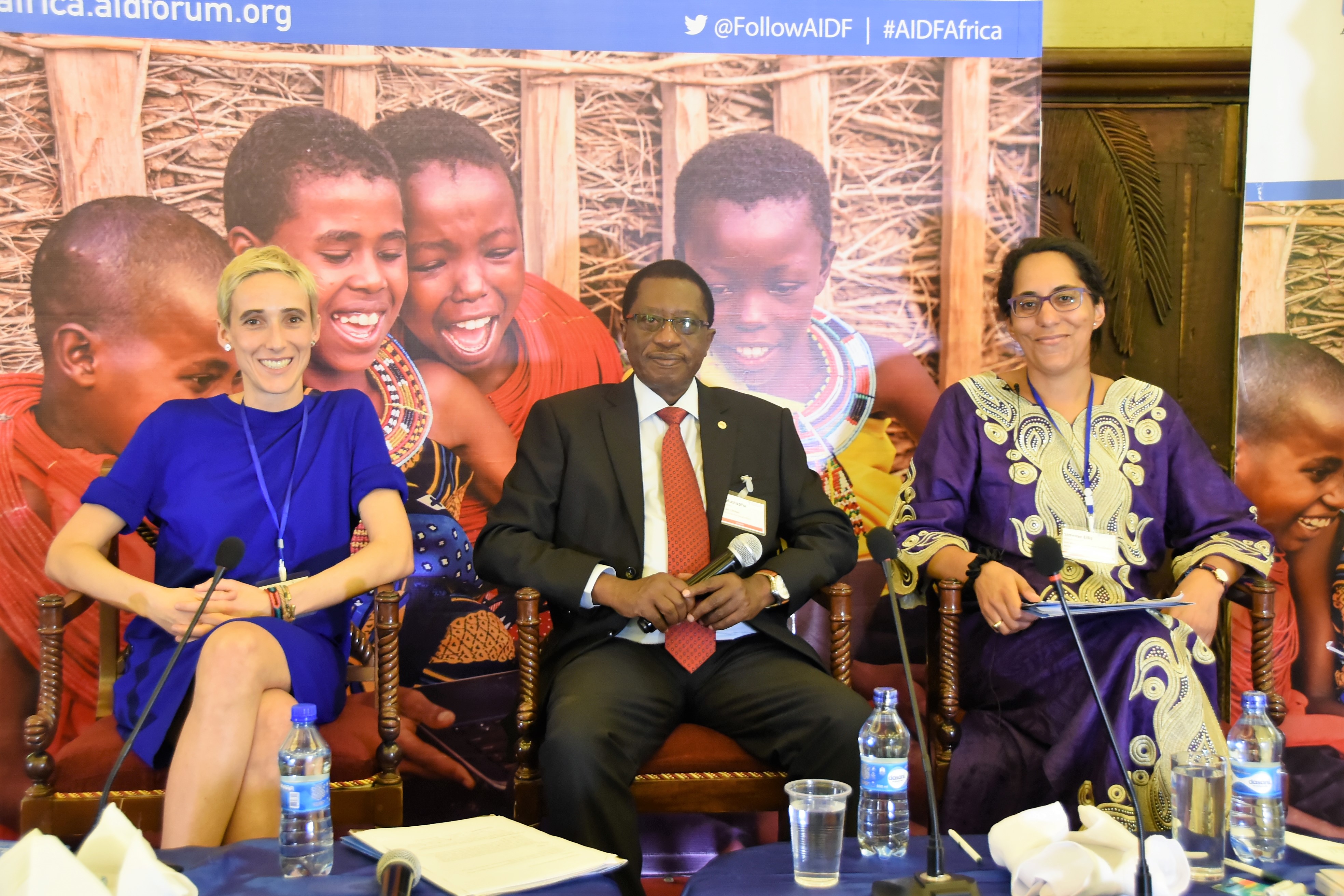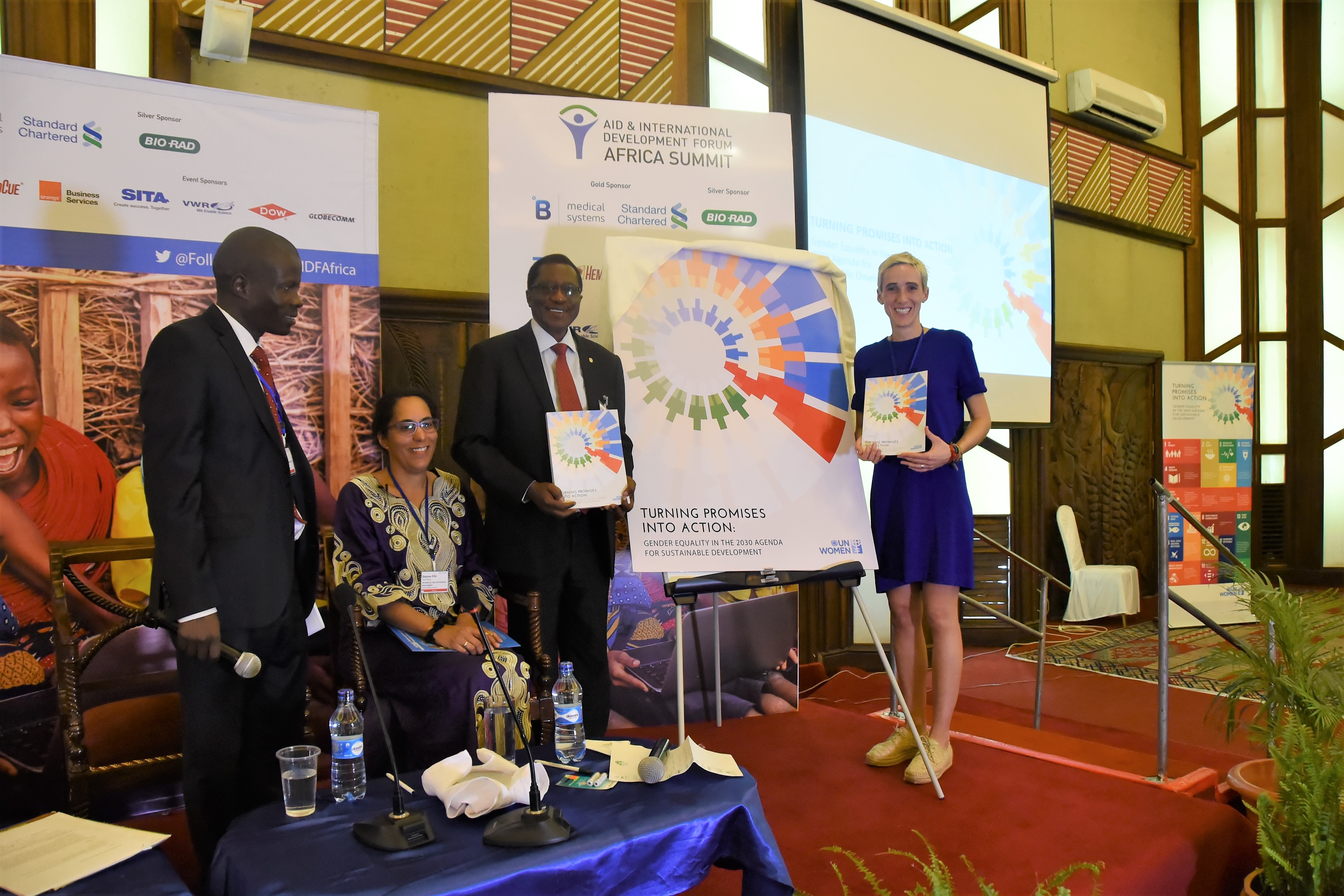To realize the SDGs, we must focus on gender equality
Date:
UN Women on Wednesday, 28th February 2018 launched its flagship report, “Turning promises into action: Gender equality in the 2030 Agenda for Sustainable Development”. The Africa launch of the report was held at the 3rd annual Aid & International Development Forum in Nairobi.
The report unveiling preceded similar launches in New York and Berlin. The report demonstrates the pervasive nature of discrimination against all women and girls everywhere, and puts forth actionable recommendations on how to fulfill the 2030 Agenda for Sustainable Development.
Speaking at the event, Ms. Simone ellis Oluoch-Olunya, the Deputy Regional Director for Africa stated that the lives of women and girls from different dimensions of well-being and deprivation are deeply intertwined. For example, a girl who is born into a poor household is most likely going to end up in an early marriage. She is most likely to drop out of school and give birth at an early age. This could further result complications during childbirth and she will experience violence. The same is not true for a girl from a higher-income household who marries at a later age. At the end of this chain of events, the girl who was born into poverty stands almost no chance of moving out of it.

Dr. Mustapha Sidiki Kaloko, Former Commissioner for Social Affairs, African Union Commission emphasized the need for national governments to localize the SDGs and ensure coordinated response gender focused response noting that gender focused goals and targets should be clearly defined and open to public scrutiny, including by parliaments, national human rights institutions and civil society.
After two and a half years since the adoption of the 2030 Agenda, this is the cardinal report which examines through a gender lens the progress and challenges in the implementation of all 17 Sustainable Development Goals (SDGs). “Taking global leaders by their word, our report provides the most comprehensive assessment to date on the status of gender equality across all the SDGs,” Simone ellis announced. The report focuses on peace, equality and sustainability and provides a powerful counter-narrative to the current rise of conflict, exclusion and environmental degradation. Yet, women are up against an unprecedented set of challenges in all these areas, and urgent action is needed to address them.
Even where progress is made, it often leaves large swaths of women and girls behind. “We need to put gender equality at the center of implementation. When the rights of women and girls are strengthened, the benefits reverberate across society. We must also close the financial gap. Without adequate resources, many of the essential services on which women and girls depend will remain unavailable or inadequate. Notably, we need to get much better in monitoring what works for women and girls and identify where course corrections may be needed,” Simone ellis mentioned during her opening speech.
According to Sophie Browne, Policy Analyst, UN Women, it came out strongly that there is a dire need to advance statistics, financing and increase accountability. Existing data is often patchy and outdated. Browne detailed that with more and better data to monitor progress for women and girls across counties’ we will be able to close the gaps. She persuaded national statistical systems, particularly in developing countries, to be strengthened. Browne also displayed how women and girls are impacted by each of the different SDGs, pointing out potential synergies that would drive progress for women, and for society.

UN Women flagship report calls the international community to step up its efforts to achieve gender equality and address pervasive discrimination against all women and girls globally. The potential of the Agenda is that by 2030 we will live in a world where gender inequality and discrimination will be an issue of the past. To turn promises into action we need to step it up.